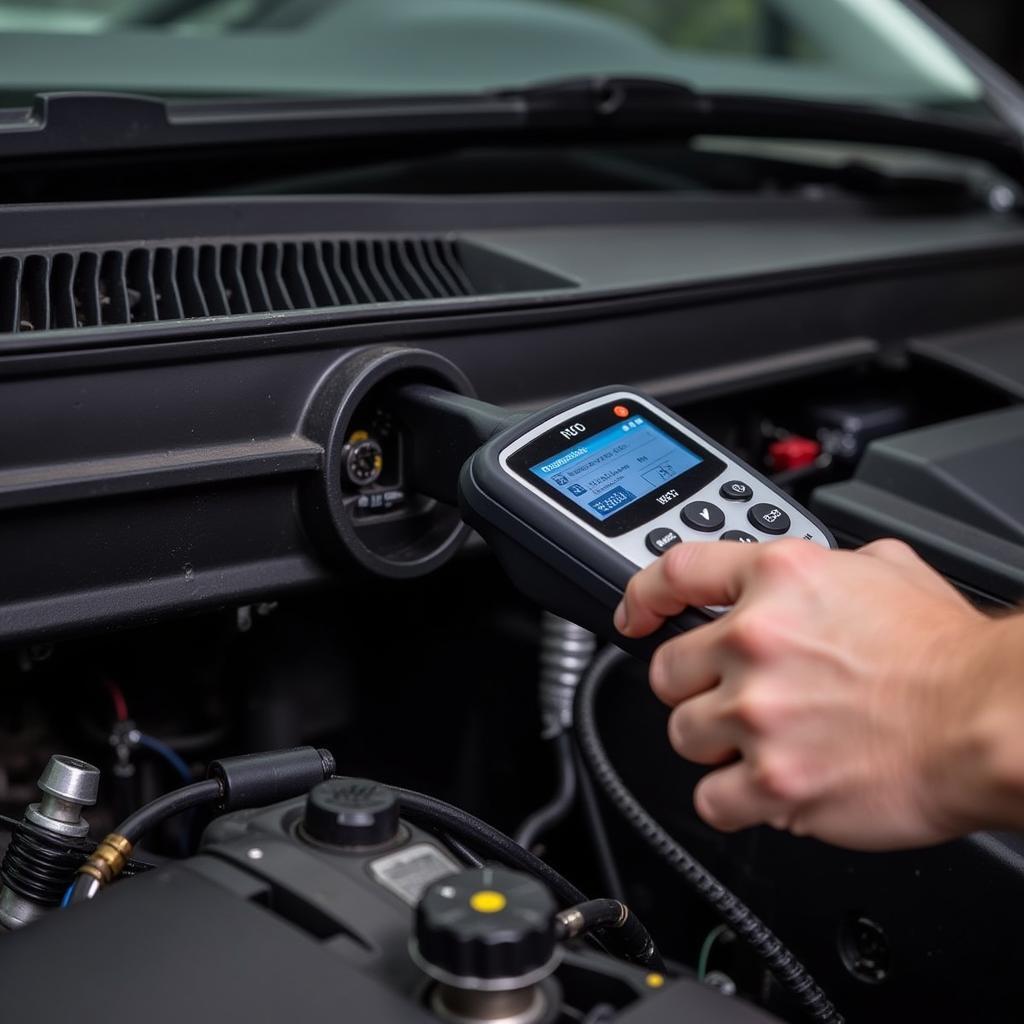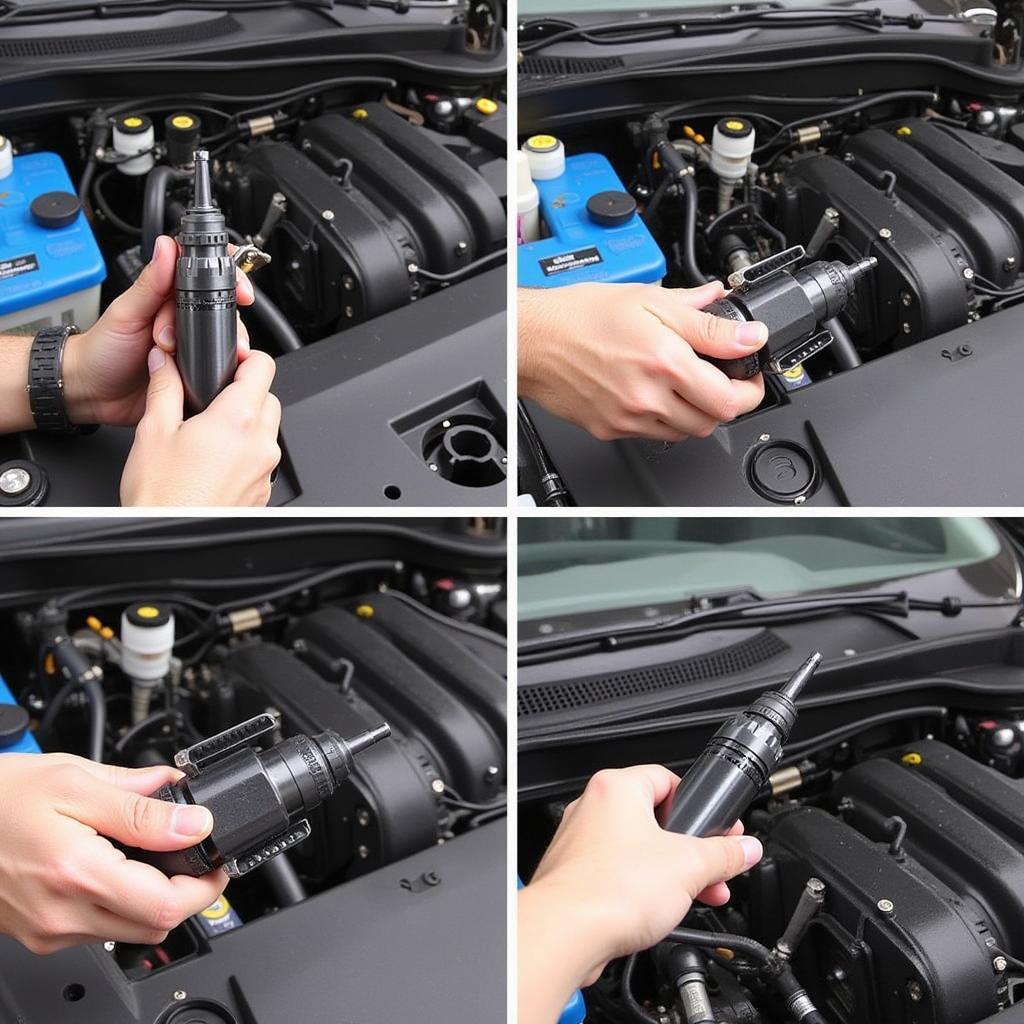Car misfires are a common problem that can cause a variety of symptoms, from a rough idle to a complete loss of power. If you’re experiencing a car misfire, it’s important to identify the cause of the problem and fix it as soon as possible.
This guide will provide you with everything you need to know about diagnosing and fixing a car misfire. We’ll cover the most common causes of misfires, how to troubleshoot the problem, and how to make repairs.
Common Causes of a Car Misfire
A car misfire occurs when one or more cylinders in your engine fail to ignite properly. This can be caused by a variety of factors, including:
- Spark plugs: Worn-out or fouled spark plugs are a common cause of misfires.
- Ignition wires: Damaged or corroded ignition wires can prevent a spark from reaching the spark plug.
- Ignition coil: The ignition coil is responsible for generating the high-voltage spark that ignites the fuel in the cylinders. A faulty ignition coil can cause a misfire.
- Fuel injectors: Clogged or faulty fuel injectors can prevent the correct amount of fuel from entering the cylinders.
- Fuel pressure: Low fuel pressure can prevent the engine from getting the fuel it needs to run properly.
- Air intake: A restricted air intake can prevent the engine from getting the air it needs to run properly.
- Compression: Low compression in one or more cylinders can cause a misfire.
- Engine control module (ECM): The ECM controls the timing and fuel delivery to the engine. A faulty ECM can cause a misfire.
How to Diagnose a Car Misfire
If you suspect your car is misfiring, there are a few things you can do to diagnose the problem:
- Listen for the symptoms: A misfire can cause a variety of sounds, including a rough idle, a popping sound from the engine, or a backfire.
- Check the engine lights: A misfire will usually trigger a check engine light. If the check engine light is on, you can use an OBD-II scanner to read the codes. This will give you more information about the cause of the misfire.
- Inspect the spark plugs and wires: If your car is misfiring, it’s a good idea to inspect the spark plugs and wires. Look for signs of wear, corrosion, or damage.
- Check the fuel injectors: If you suspect the fuel injectors are clogged or faulty, you can have them tested by a qualified mechanic.
- Check the air intake: Make sure the air intake is clean and free of obstructions.
- Check the fuel pressure: If you suspect low fuel pressure, you can have it tested by a qualified mechanic.
How to Fix a Car Misfire
Once you’ve identified the cause of the misfire, you can start to make repairs. Here are some general steps:
- Replace the spark plugs and wires: If the spark plugs or wires are worn out or damaged, replace them with new ones.
- Replace the ignition coil: If the ignition coil is faulty, replace it with a new one.
- Clean or replace the fuel injectors: If the fuel injectors are clogged, you can clean them with a fuel injector cleaner. If they are faulty, you will need to replace them.
- Repair any fuel pressure problems: If you have low fuel pressure, you will need to fix the problem. This may involve replacing the fuel pump, fuel filter, or other fuel system components.
- Remove any obstructions from the air intake: Make sure the air intake is clean and free of obstructions.
- Have the ECM inspected: If you suspect the ECM is faulty, you will need to have it inspected by a qualified mechanic.
 Car Engine Diagnostic
Car Engine Diagnostic
Expert Advice on Car Misfires
“I recommend using high-quality spark plugs and wires. This will help to prevent misfires and prolong the life of your engine.” – John Smith, Certified Automotive Technician
“If you’re experiencing a misfire, it’s important to have it diagnosed by a qualified mechanic as soon as possible. The sooner you address the issue, the better.” – Sarah Jones, Automotive Expert
FAQs About Car Misfires
Q: What are the most common signs of a car misfire?
A: The most common signs of a car misfire include a rough idle, a popping sound from the engine, a backfire, and a decrease in fuel efficiency.
Q: How can I prevent a car misfire?
A: You can prevent a car misfire by following the manufacturer’s recommended maintenance schedule, using high-quality fuel, and inspecting the spark plugs and wires regularly.
 Fuel Injector Cleaning
Fuel Injector Cleaning
Q: How much does it cost to fix a car misfire?
A: The cost to fix a car misfire can vary depending on the cause of the problem and the repair needed. For example, replacing spark plugs and wires can cost around $100, while replacing an ignition coil can cost around $200.
Q: Can I drive my car with a misfire?
A: It’s not recommended to drive your car with a misfire, as it can damage the engine. If you notice any signs of a misfire, you should take your car to a qualified mechanic as soon as possible.
Conclusion
A car misfire can be a frustrating and potentially damaging problem. By understanding the common causes of misfires and how to diagnose and fix them, you can keep your car running smoothly and avoid costly repairs.
If you’re experiencing a car misfire, don’t hesitate to contact car sos fix, or call us at +1 (641) 206-8880. We’re here to help!




Leave a Reply